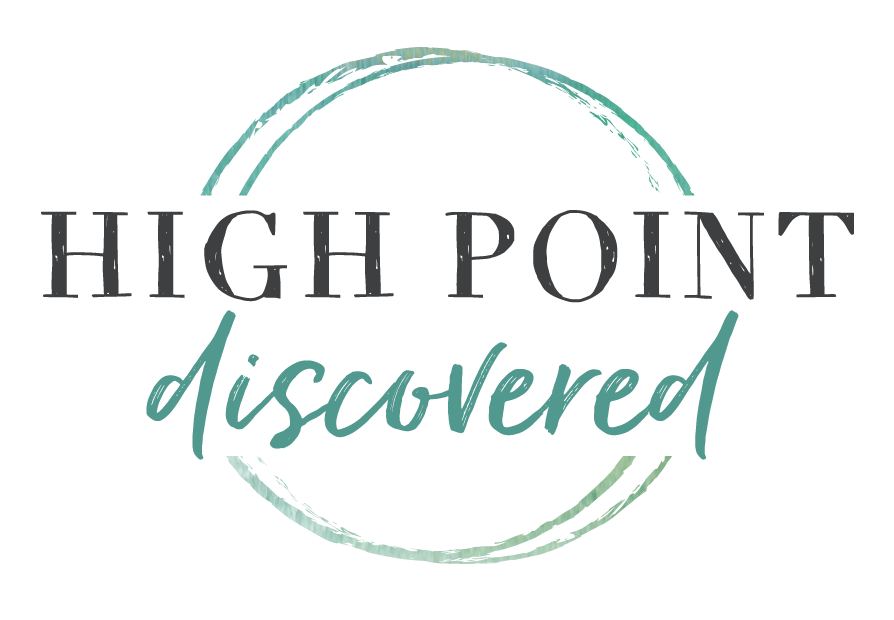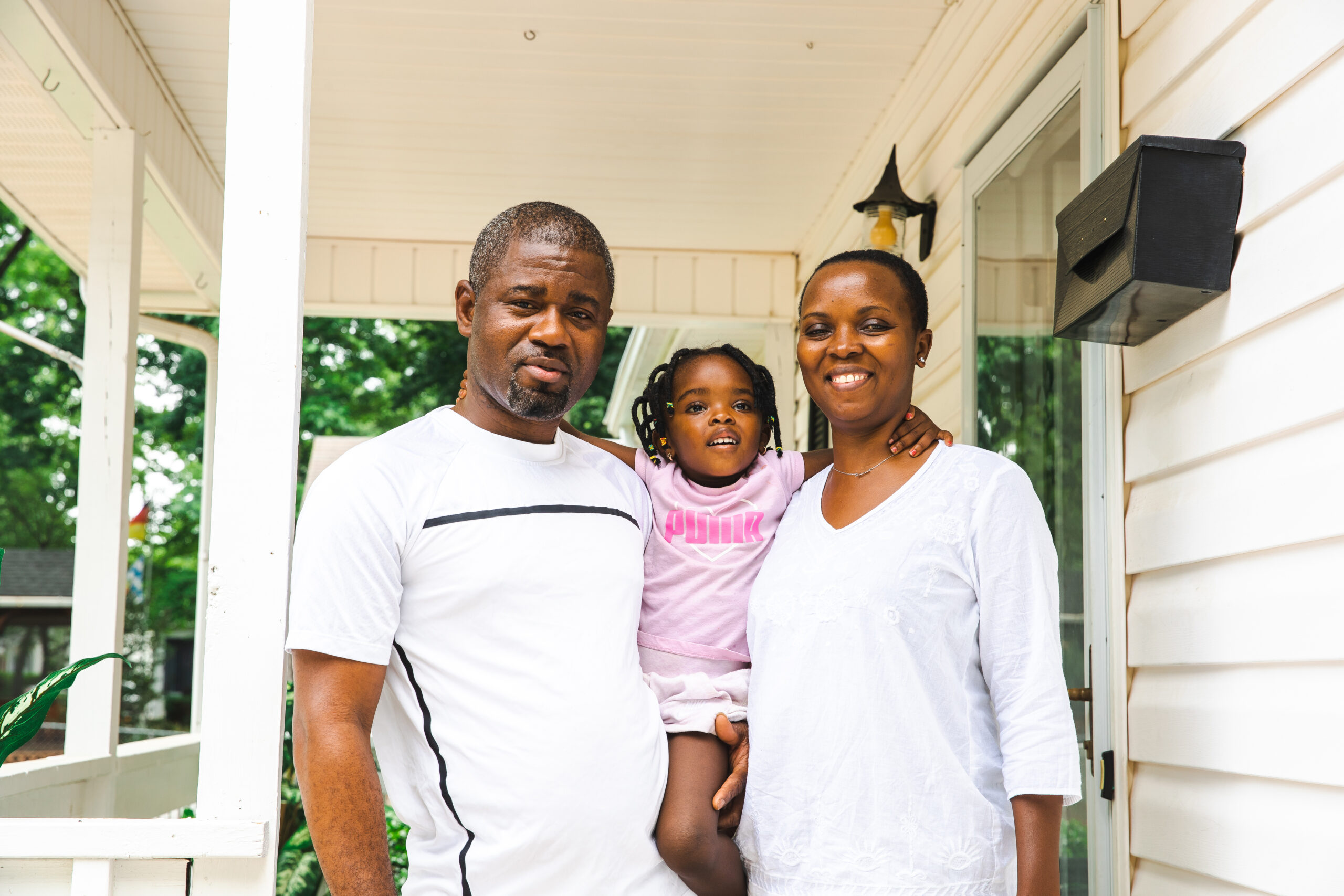First Family: World Relief Triad
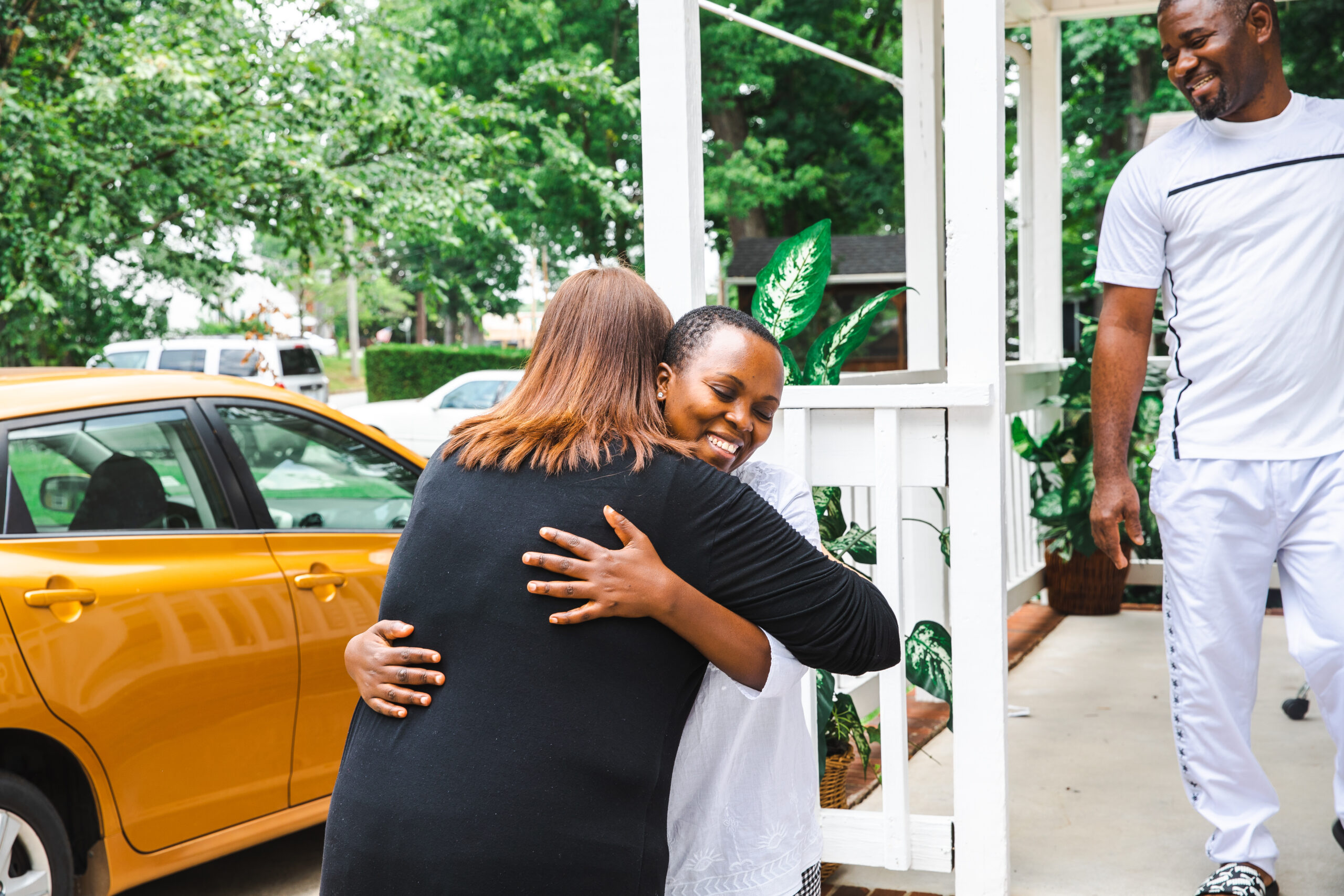
While many of us have called High Point home for our entire lives, other High Pointers in our community have arrived in High Point as newcomers. Some because of career, others because of relationships, or family, or school – while others, like Ramazani and Didi Lwamba, didn't come to High Point by choice but out of necessity.
Originally from the Democratic Republic of the Congo (DRC), the Lwambas were faced with a nearly impossible decision – flee from their home or live every day in fear for their and their children’s safety.
“We fear for how we can survive,” Ramazani says. “At nighttime, you can’t sleep knowing you don’t know if you’ll wake up tomorrow.” He goes on to speak of the fighting that rages on in the DRC. Instability due to response to the Rwandan Genocide, Africa’s World War that took place on Congolese soil, and a variety of other armed groups continuing to fight in the DRC has left the country’s citizens living in fear for the survival. (To learn more about the history of the DRC’s conflicts, visit Eastern Congo Initiative and World Vision).
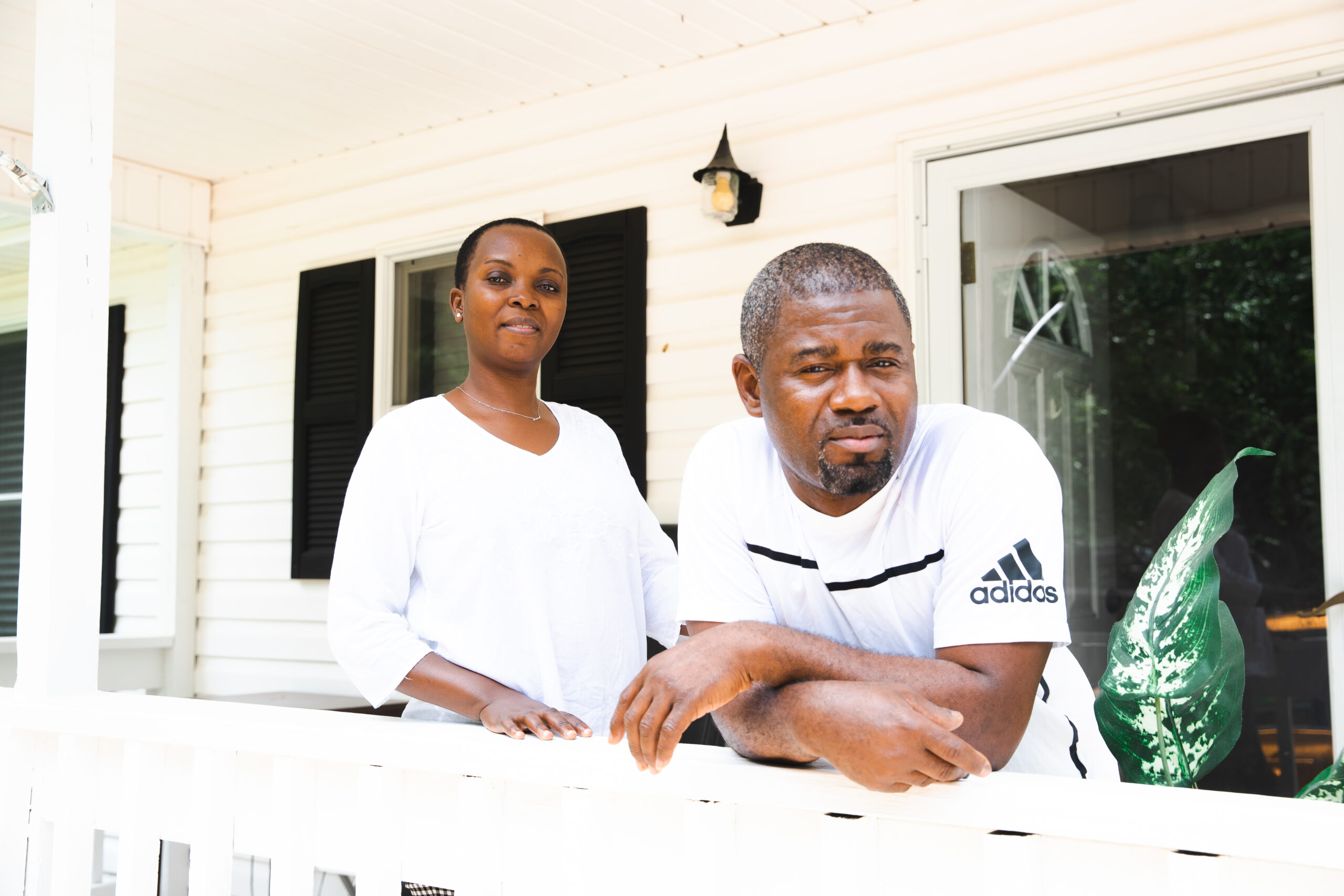
So, like many other Congolese citizens, Ramazani decided to flee from his home with his wife and two children at the time and began the long, often painstaking process of resettling to a new country and new home, where his family would be safely welcomed.
In 2007, the Lwambas traveled to Kenya, a country where they could begin the process of filing for refugee status. Refugee status (which is granted to those fleeing their country due to persecution or the threat of violence for political, religious, or racial reasons), can take decades to achieve. For Ramazani and Didi, it took more than eight years.
To achieve refugee status, individuals have to register in a country that is not their home country. After that, they must file for eligibility, while the office profiles the family and those in their networks – confirming their story is accurate and their survival is truly at stake. The waiting also means waiting to find out which embassy – the United States, Australia, Canada, or a European nation – will accept the individual or family as a refugee to their country. Having personal ties to a family member in another country can increase an individual’s chance of being resettled there, but there is no guarantee.
“Some people are there [in the refugee camp] 20 or 30 years,” Ramazani says.
After arriving in Kenya and receiving food and medical assistance, the Lwambas began to wait. It was during this time that Ramazani began to learn English, a skill that would serve him well as he continued his journey. Working in technical machine repair in Kenya, Ramazani often struggled to find places to practice the English he was instructed to learn.
“It was just technical,” Ramazani says of his job in Kenya. “You can’t speak with a machine!”
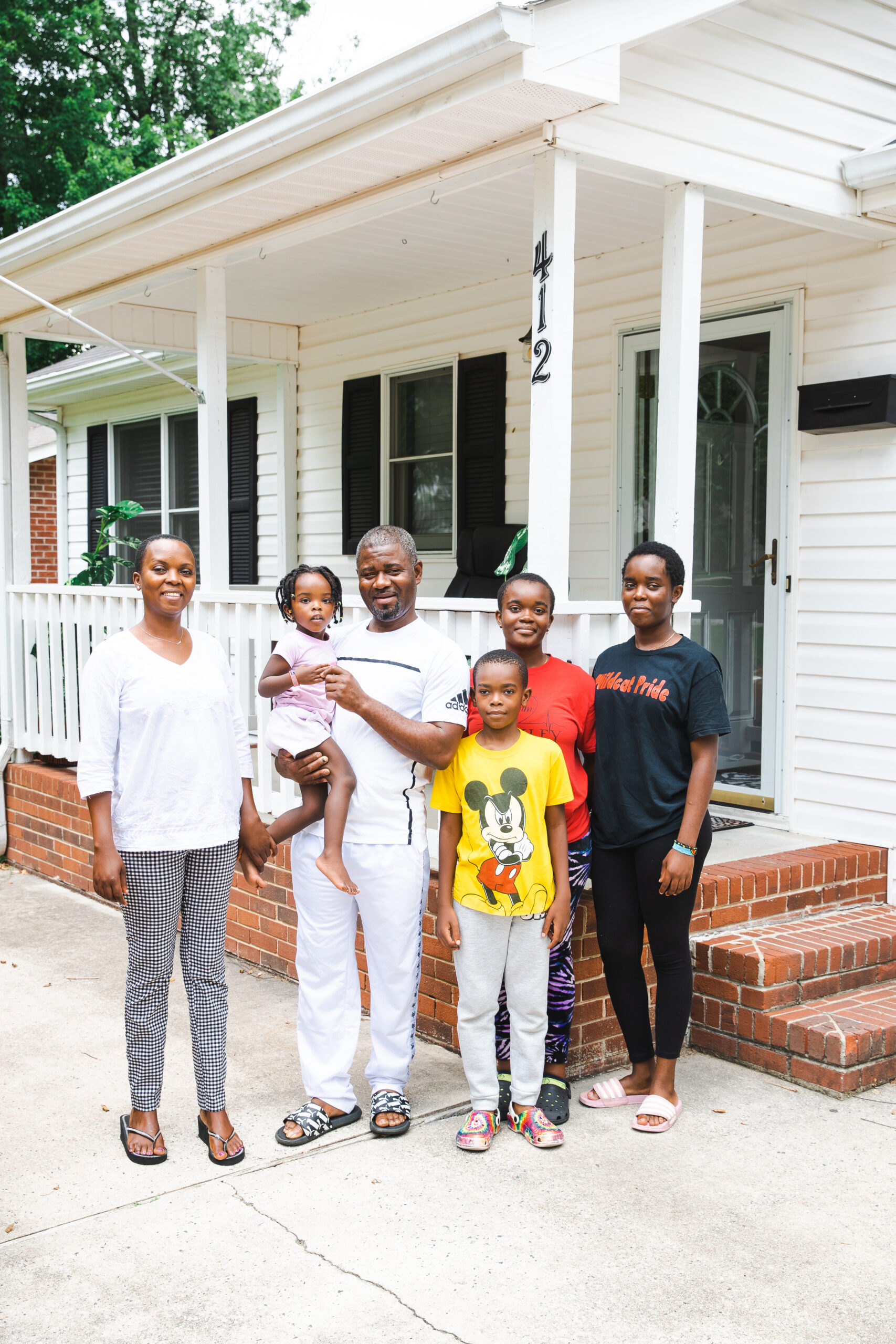
But in addition to speaking French, Swahili, and Lingala (a language spoken in the DRC), Ramazani and Didi added English to their language repertoire, wondering what country they’d eventually be speaking their fourth language in.
“We were waiting for five years without any call or interview... nothing,” Didi remembers. The Lwambas' life in the Kenyan refugee camp at times felt hopeless, with so little access to food and no feeling of settlement in their temporary home. The desert climate also took a toll on their family, as Ramazani can only remember it raining twice in Kenya over the course of three years.
At that five-year mark, the Lwambas began to genuinely question their decision to leave the DRC. In fact, it was then that Ramazani remembers saying with defeat: “Let’s just go back home.”
But three weeks later, they were called by the office to begin their resettlement process.
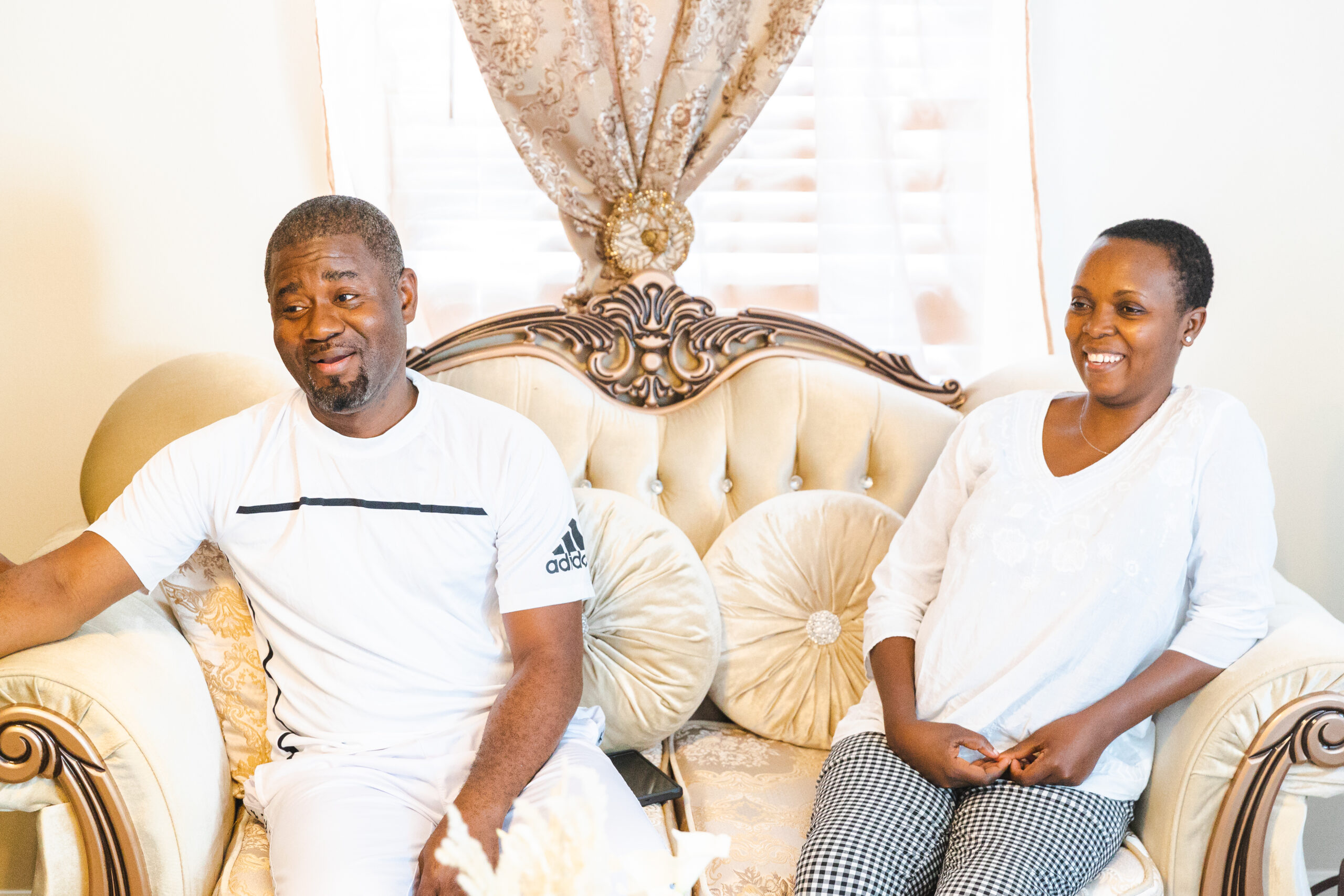
“When I decided to go back, God had a proposition,” Ramazani says with a spark in his eye. After finding out they would be resettled in the United States, the Lwambas then went through the process to be placed in a city in America. That city, of course, was High Point, N.C.
After leaving Kenya, flying to Belgium, and New York City, the Lwambas finally landed in North Carolina. And waiting for them at the airport on their first day in their new home was Kara Hernandez, an employee at World Relief Triad.
Ramazani, Didi, and Kara laugh now, sitting together in the Lwambas’ living room in High Point. They remember the night they first met, now nearly eight years ago. World Relief Triad, a refugee resettlement organization with offices in High Point and Winston-Salem, is part of a national organization that works to help thousands of refugees who arrive to the States each year to start their new life.
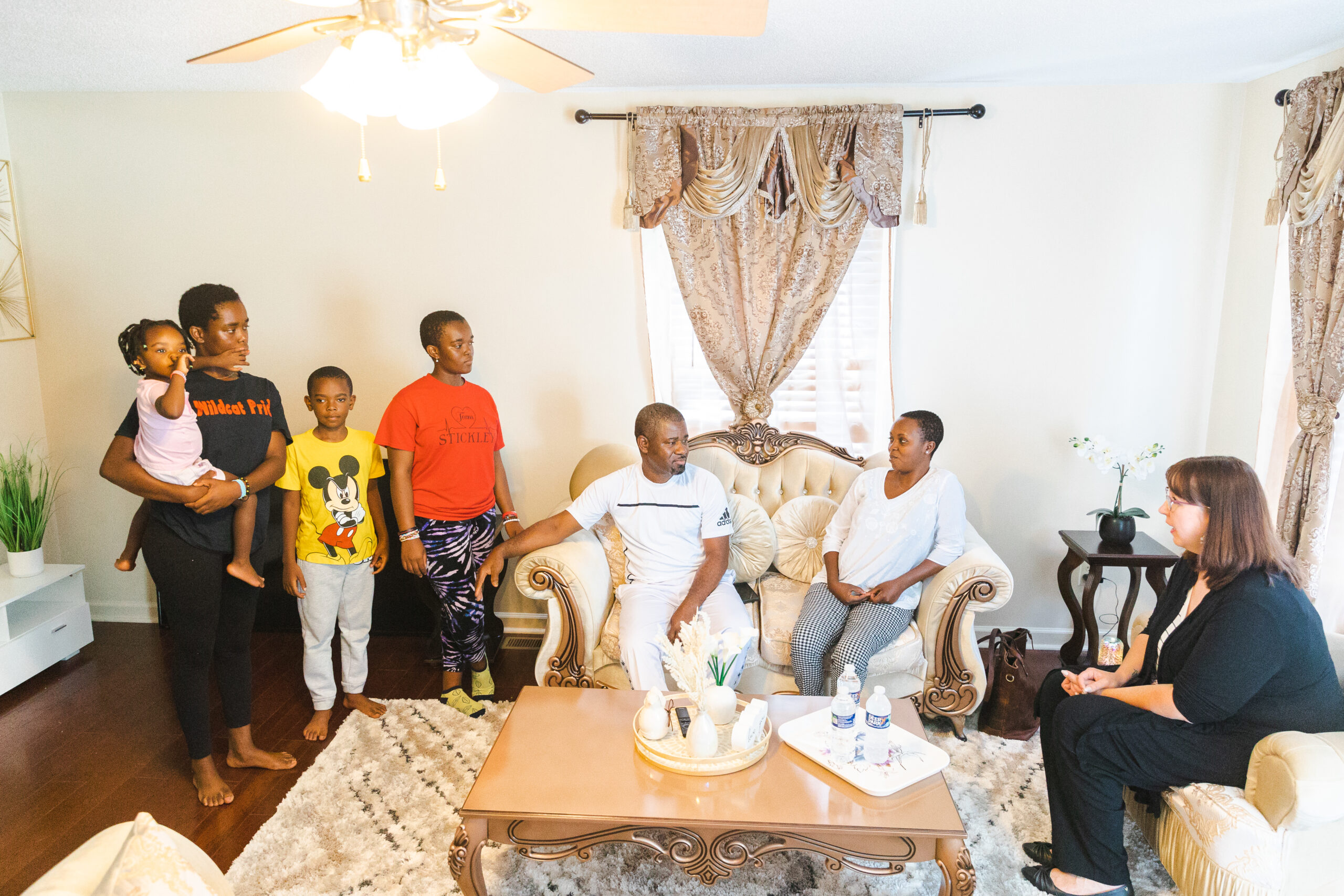
“The term ‘durable solution’ is wanting a place where a family can go and settle and rest,” explains Kara, noting that some refugees are eventually able to return to their home country when fighting or danger ceases. For others, like the Lwambas, the durable solution is resettling into a new country.
World Relief is a non-profit agency contracted by the U.S. Government to ensure that the first 90-days of a refugee’s time in the States is successful and lays the foundation for a sustainable future for them in their new homes. World Relief treats each refugee as a client, providing needed services with respect, support, and love.
After their airport pick up and transport to their new, temporary home (already stocked with home goods, groceries, and furniture), World Relief’s clients are given support to succeed in their first 90 days in the States. World Relief takes their clients to social security appointments, helps them receive food stamps and Medicaid, visit the health department, participate in cultural orientation, and enroll in English as a Second Language classes at Guilford Technical Community College all happen within that initial 90 days. Additionally, World Relief offers programs that can be accessed for up to five years after an individual’s initial arrival date – like employment services, as well as some health and wellnes services, intensive case management, immigration legal services, and more.
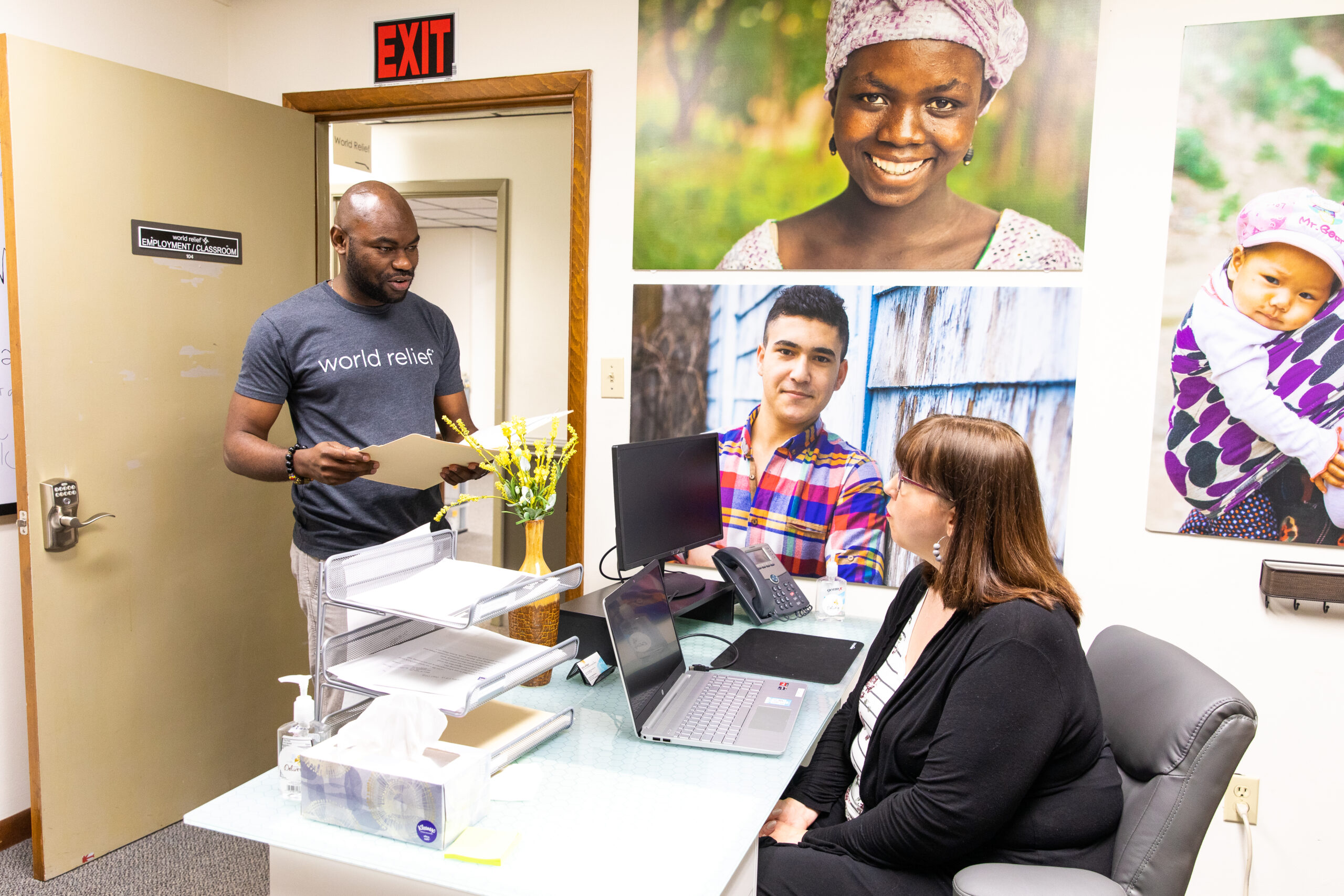
But Kara and the Lwambas admit, sometimes it’s that first night that can mean the most.
“The impression that you have when you first arrive in the United States is huge,” Kara says. “It sets your foundation for the rest of your time. You feel welcomed. You feel loved. And that’s what we endeavor to do with our volunteers.”
Within the first three months of arriving in High Point, Ramazani, a talented seamster, was already placed in a job at Stickley, a furniture company that World Relief already had a partnership with in High Point. Seven years later, Ramazani is still at Stickley, now trained on a variety of skillsets related to the industry, including upholstery.
“I’ve learned too much at Stickley,” Ramazani teases. Didi works as a seamstress at Colonial in High Point. Both bring their skillsets to the industry High Point is so well known for, adding additional support, skill, and tax base to High Point. Their kids (they now have four, ranging in age from 2-years-old to 16-years-old) are now safe to learn and grow in their local school. And the Lwambas just recently purchased their first home in High Point.
And while they often think of their family still in Kenya, and hope to see them through the process of joining them in the States, the Lwambas are also thankful for the safety and success they’ve experienced in High Point. Didi still makes the foods the family loves – like Ugali (a corn flour porridge) and dried fish – from ingredients she purchases at a local grocery store that sells authentic African-Caribbean ingredients. They've made friends with others in High Point who have relocated from the DRC. But they say all their transition into their new life in High Point was because of World Relief.
From job interview training to cultural orientation to English practice, World Relief was the launchpad that the Lwambas needed to become full-fledged High Pointers.
Since his resettlement, Ramazani volunteers with World Relief as a translator and in helping to set up the first homes for other families who arrive in the States. And World Relief even helped support the Lwambas during the purchase of their first home when they needed questions answered for their realtor about different paperwork and financial statements.
And while World Relief cannot directly expedite the process of achieving refugee status, they can work as confirming agents and advocates for resettled refugees who are ready to welcome their family members seeking placement in the States.
For Kara, who recently transitioned from Program Services Director at World Relief Triad to Post-Arrival Reception & Placement Program Officer at the World Relief Home Office, she says the work World Relief does is all about welcoming people.
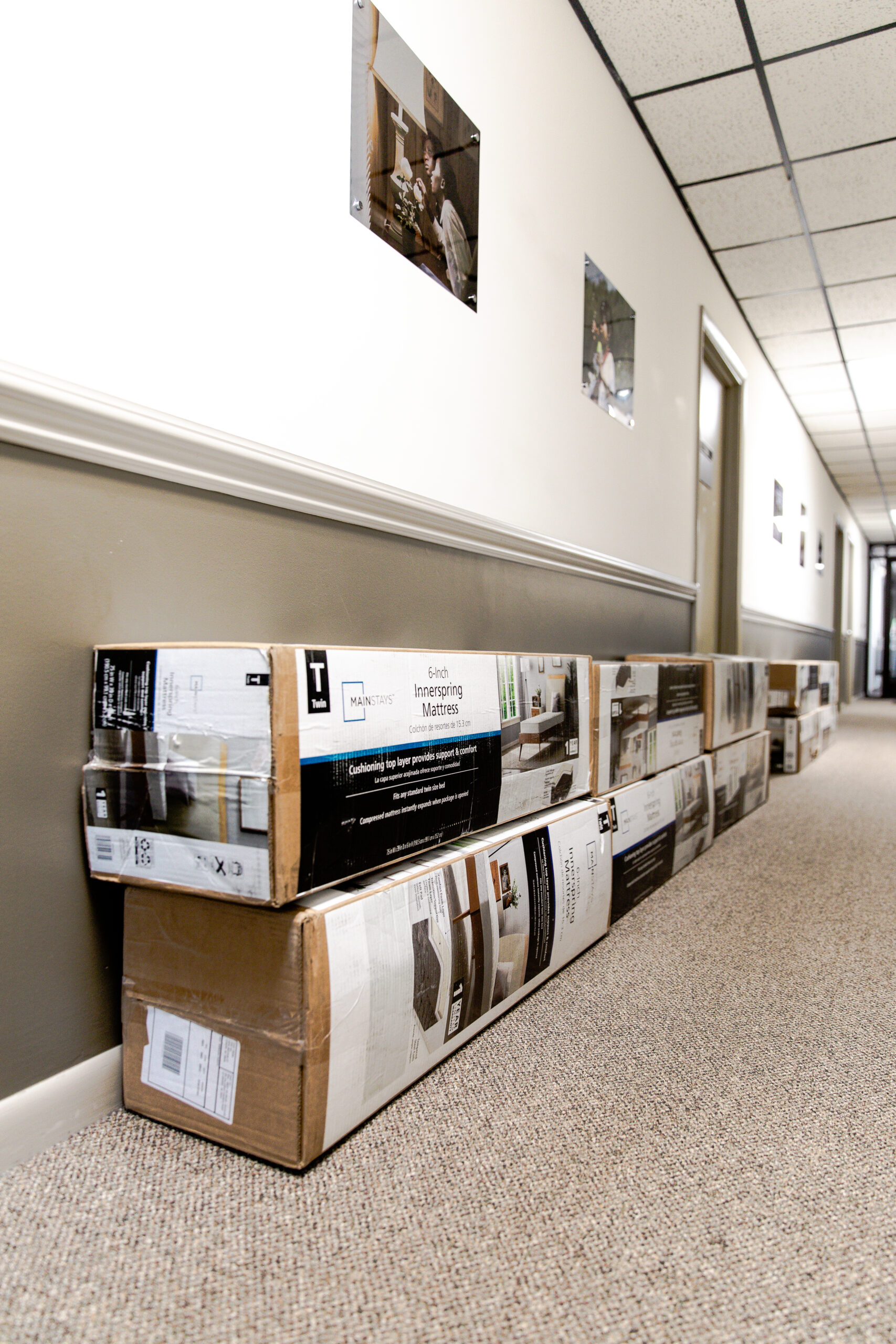
“We all come to our work knowing it’s a ministry,” she says, “and we welcome people from all backgrounds – no matter if they’re Muslim or Hindu or Buddhist or Christian or they don’t have any religion that they follow – we are able to extend that love and warm welcome to them.”
And in many ways, it’s this kind of welcome that makes High Point home for these new arrivals.
“I don’t know my neighbors on this side or this side,” Ramazani says sadly, gesturing in his home. He compares his time in the States to his life in the DRC, where the neighbors spent time building community. He notes how now, he gets in his car and goes to work and immediately goes home, spending less time in the communal aspects of his city than in his former home country.
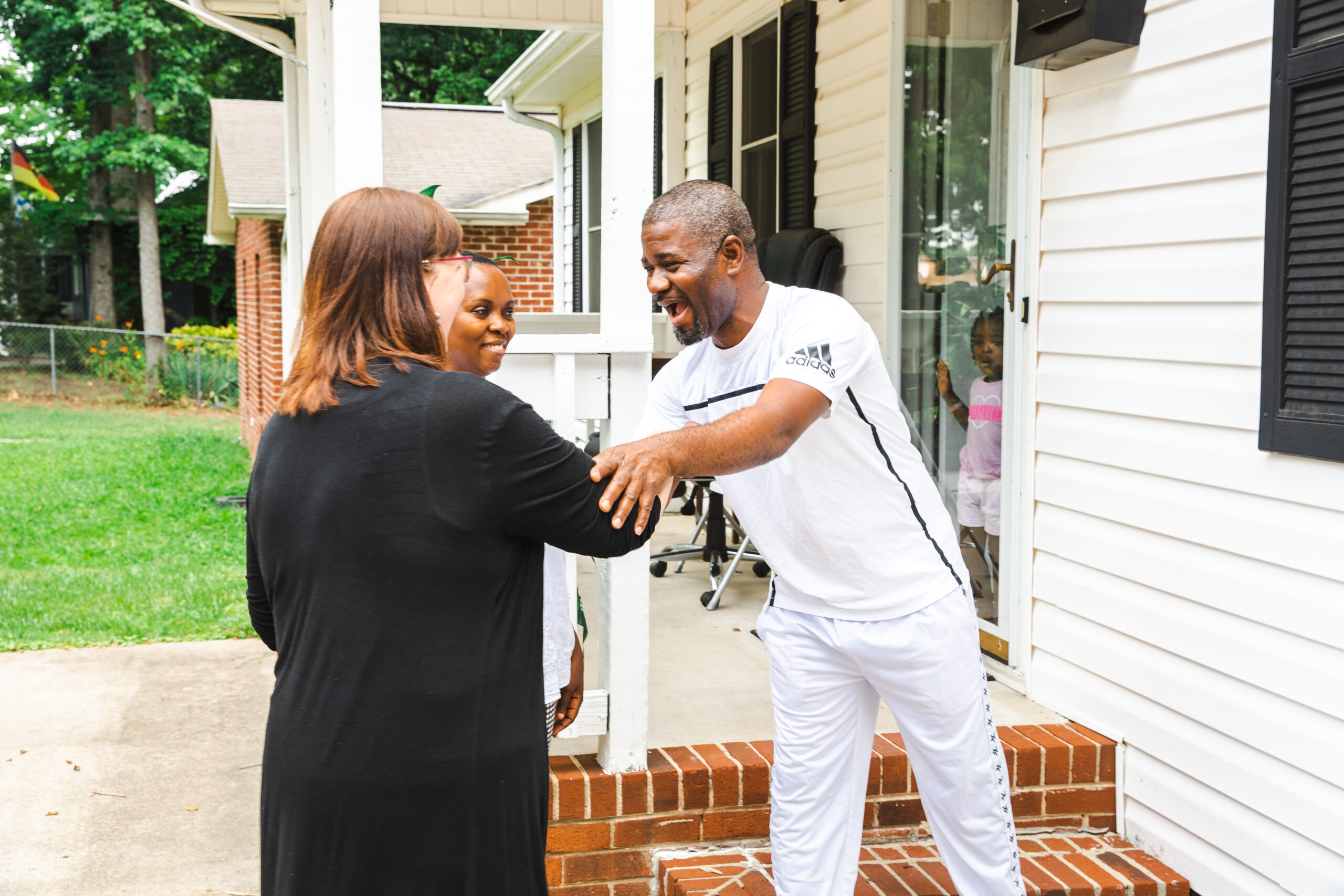
But even after eight years in the States, the Lwambas still have close connections to their resettlement team from World Relief.
“That was my first family in America,” Ramazani says with a smile.
World Relief nationally resettles thousands of families in the States each year, and they need our community’s help to do it. While they receive a small portion of funding from the U.S. Government, the needs exceed the means. That’s where we as a community can come alongside our new citizens and support them in their transition to their new home.
"[World Relief] was my first family in America."
- Ramazani Lwamba
WAYS TO SUPPORT OUR NEIGHBORS
VOLUNTEER
World Relief has a variety of opportunities for volunteers: airport pick-up teams, youth mentoring, home set-up, and more to welcome our new neighbors.
GIVE
Don’t have time to spare? World Relief needs financial support to offset the cost of ensuring our new neighbors have a safe and successful start in High Point.
DONATE
It’s World Relief’s goal to make sure every family arrives to a house that feels like a home. Donate gently used and new items to help furnish first homes!
COLLABORATE
World Relief is always on the lookout for local business partners who can help with needs, from housing to job placements. Know of an opportunity?
Discover our High Points,
The HPD Team
Photography by Brandon Lee Media
